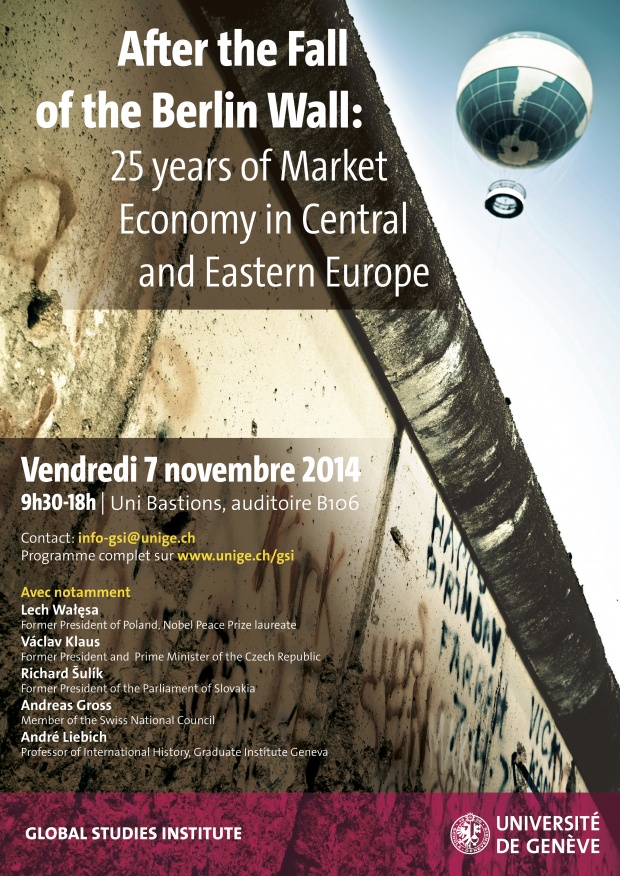25 Years After the Fall of the Berlin Wall
You can watch the welcome address and the keynote session of the conference (the other sessions will be available soon):
English version
Version française
Polish version
Introduction
On November 7, 2014, the Global Studies Institute of the University of Geneva is organizing a conference to commemorate the 25th anniversary of the fall of the Berlin Wall. This major historical event will remain subject of debates for years to come. The conference will focus on the implications of the economic transitions in Central and Eastern Europe (CEE) that followed the end of the Cold War and debate about the political, social and economic consequences.
As there is more than one model of market economy, there is also more than one model of economic and political transition. The strategies and policies adopted across the area of CEE differed significantly. At the same time, the design of capitalism offered by the West was not homogenous. Tensions emerged between the need to adapt the institutional and political framework to the needs of market economies and the economic, cultural and historical baggage of the Cold War. The perspective of accession to international organizations provided a sense of direction, but it also caused some mutual distrust. On the one hand, the CEE countries and their institutions lacked experience with democracy, liberalism and the rule of law. On the other hand, the dynamics of conditionality and harmonization drastically curtailed the newly established democratic process.
Several current challenges that the European nations are facing can be contextualized with regard to the post-Cold War economic transitions. The fall of the Berlin Wall had significant implications for the process of European integration. The accession of CEE countries to the EU has influenced both the disposition of the EU internal market as well as the EU external relations, in particular with its neighbours. Including the economic transitions of the past 25 years into the scope of the analysis can help us gain further insights into current tensions and asymmetries in relations among European states.
Lieu: Uni Bastions (Salle B106)
Entrée libre
Contact: info-gsi@unige.ch

2014
